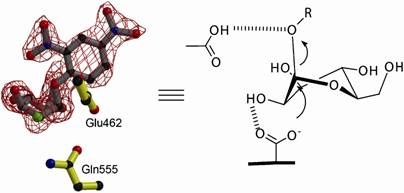Emilio Bunel named new head of Argonne's Chemical Sciences and Engineering Division
Bunel wanted to get back to his science roots after spending years in industry
Advertisement
Emilio Bunel has been named director of the Chemical Sciences and Engineering Division at U.S. Department of Energy's Argonne National Laboratory.
"I decided to give myself four weeks to get to know my division," Bunel said. "I want to have a feeling of what is important for this organization and what is important for the individual groups."
Bunel received his Ph.D. in chemistry from the California Institute of Technology in 1988. He began his professional career at DuPont Central Research as a member of the Catalysis Group. He was responsible for the discovery and subsequent development of new processes for the synthesis of Nylon intermediates required in the manufacture of Nylon-6,6 and Nylon-6. In 2001, Bunel was hired by Eli Lilly to establish the Catalysis Group within the Discovery Research Organization. This group was responsible for the preparation of organic compounds using transition metal catalyzed reactions. The molecules prepared spanned all the aspects of the pharmaceutical endeavor from early lead optimization to process development. In 2003, he became an associate director at Amgen, Inc. His work included the establishment of the Catalysis Group in support of route selection/process development efforts to manufacture active pharmaceutical ingredients for clinical testing. Most recently, Emilio was employed as the director of research at Pfizer, Inc., where he directed the Catalysis Group in support of medicinal chemistry and process development.
Other news from the department science
Most read news
More news from our other portals
See the theme worlds for related content
Topic world Synthesis
Chemical synthesis is at the heart of modern chemistry and enables the targeted production of molecules with specific properties. By combining starting materials in defined reaction conditions, chemists can create a wide range of compounds, from simple molecules to complex active ingredients.

Topic world Synthesis
Chemical synthesis is at the heart of modern chemistry and enables the targeted production of molecules with specific properties. By combining starting materials in defined reaction conditions, chemists can create a wide range of compounds, from simple molecules to complex active ingredients.
































































